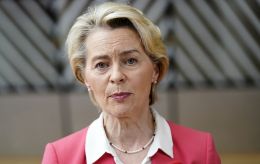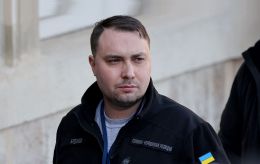Trump changing the game: Why Crimea suddenly came up in peace talks
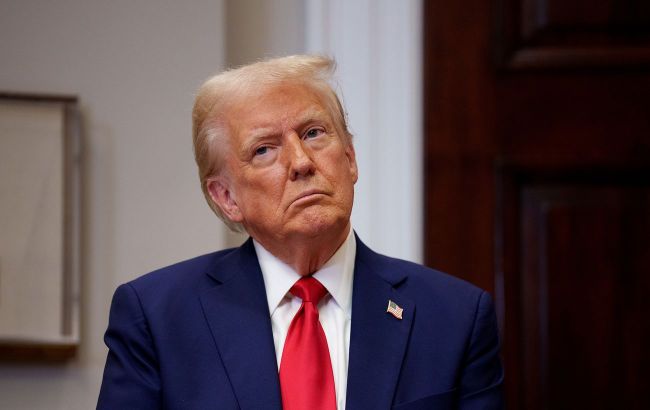 US President Donald Trump (photo: Getty Images)
US President Donald Trump (photo: Getty Images)
Why, at the suggestion of the Americans, the topic of Crimea's occupation suddenly took a prominent place in discussions about ending the war, why exactly the peninsula is important to Russia, and what role it may play in future peace negotiations – read in the RBC-Ukraine's article below.
Takeaways:
-
For what reasons did the issue of Crimea appear in the negotiations?
-
How did the military significance of Crimea for Russia change during the aggression against Ukraine?
-
What is Crimea's role in the Russian information war?
-
How does its own propaganda affect the Russian leadership’s position on Crimea?
Crimea unexpectedly found itself at the center of attention regarding negotiations to end the Russian-Ukrainian war. And in an unpleasant context for Ukraine.
It is about the de jure recognition of the occupied peninsula as part of Russia – at least by the United States. For the first time, such a thesis was presented at a meeting on April 17 in Paris in the proposals regarding the end of the war, which the US handed over to Ukraine and its European allies.
However, through all possible channels, publicly and privately, Ukraine has explained to the Americans that such a formulation of the issue is categorically unacceptable to Kyiv. The Europeans supported this. On April 22, the President of Ukraine, Volodymyr Zelenskyy, stated that Kyiv does not recognize the legality of the occupation of Crimea, as it violates the country's Constitution. In response, US President Donald Trump wrote in his profile on Truth Social: "No one is asking Zelenskyy to recognize Crimea as Russian territory."
The Axios' sources in the American government report that Zelenskyy once again personally explained Ukraine's position to Trump during a meeting in the Vatican. However, already the next day, April 27, Trump stated that, in his opinion, Zelenskyy was ready to give up the Crimea annexed by the Russian Federation.
"Oh, I think so," – Trump said in response to a question about whether he thinks Zelenskyy is ready to "give up" the peninsula.
Such behavior of the Americans can be considered their usual negotiation tactic: to try to "anchor" a certain topic through constant repetition (in this case, "Crimea must be recognized as Russian") so that it would later be more difficult for other participants in the negotiations to "knock it down."
In turn, Russian Foreign Minister Sergey Lavrov, in an interview with the publication O Globo, called international recognition not only of Crimea but also of other captured regions an "imperative." So, a period has definitely not been put in this matter.
Military significance of Crimea
There are a number of factors that make Crimea important for Russia. Due to its geographical location, it remains significant for Russia in a military context. At the same time, in this area, the role of the peninsula is changing perhaps the fastest.
Already starting from the 19th century, Crimean naval bases, primarily Sevastopol, were important for the presence of the Russian fleet in the Black Sea. Later, in the 20th century, the aviation component was added – Soviet strategic bombers, including the Tu-22M and Tu-95, were stationed on the peninsula. In this case, an important role was played by the fact that nearby were countries allied to the Soviet Union in Eastern Europe.
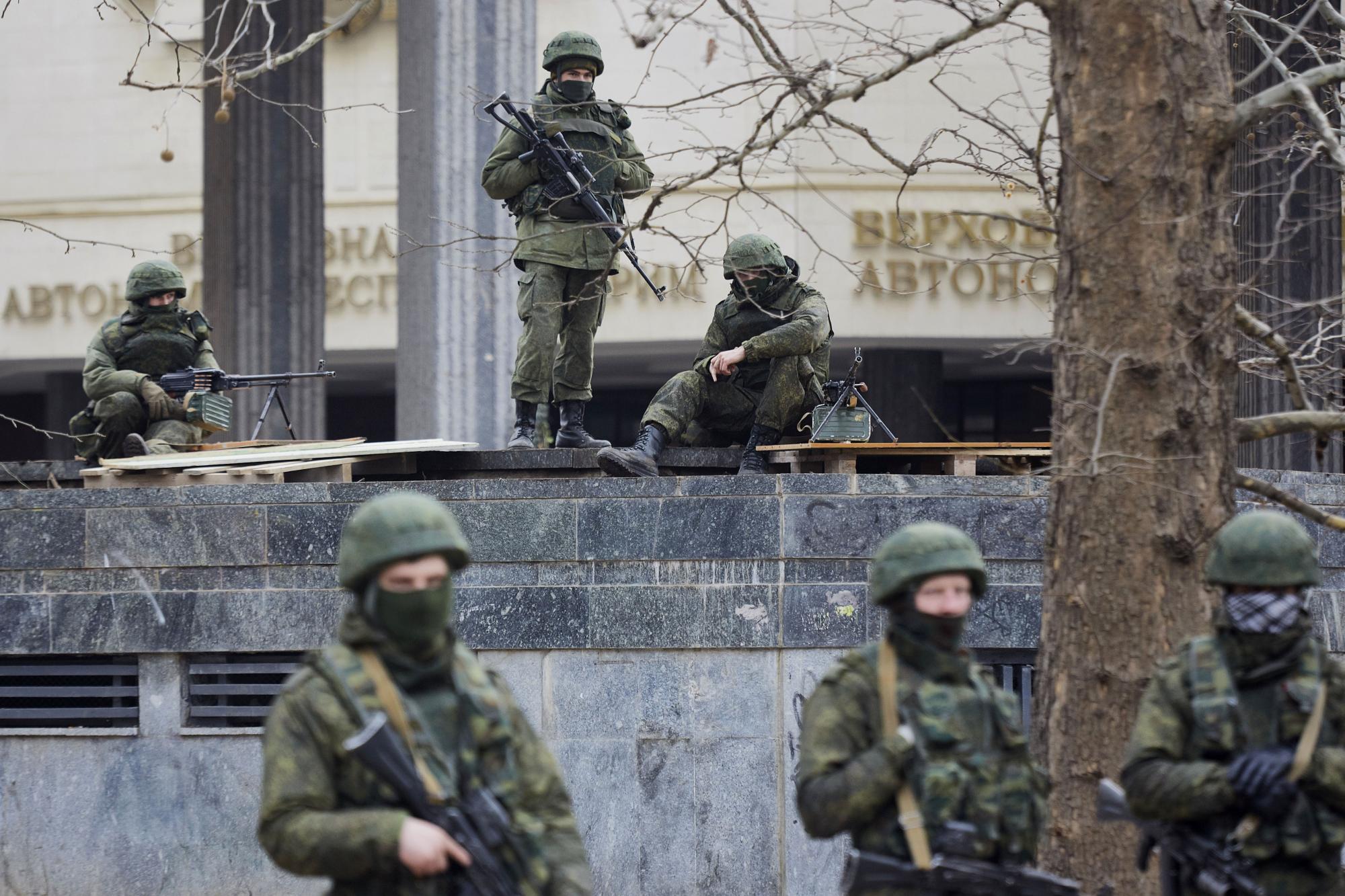
Russian occupiers near the seized building of the Crimean parliament (photo: Getty Images)
"Crimea was an 'unsinkable aircraft carrier' due to the fact that around it were Romania and Bulgaria, which were members of the Warsaw Pact. Because if a Tu-22 aircraft takes off from a Crimean airfield to strike US aircraft carriers in the Mediterranean Sea, for example, it had to reach cruising altitude somewhere over central Romania," said Pavlo Lakiychuk, the Head of the Security Programs of Centre for Global Studies “Strategy XXI”, to RBC.
With the collapse of the USSR, this factor was neutralized. Especially when Romania and Bulgaria joined NATO. And since the range of cruise missiles carried by Russian bombers allows them to operate from bases on the Russian mainland, Crimea ceased to be a base point for them.
However, after 2014, the peninsula turned into a springboard for attacks on the southern regions of Ukraine. Starting in 2017, Russia created an offensive group of troops there, which was involved at the beginning of the full-scale invasion. The military infrastructure on the peninsula was also strengthened.
"It is a large territory to store weapons and air defense systems. And in general, there are airfields from which planes take off. Of course, there are launchers for various types of missiles. And also there are Shaheds," said military expert Oleksii Hetman to RBC-Ukraine.
At the same time, the role of Sevastopol as a naval base has decreased. Successful Ukrainian attacks destroyed a large part of the Russian fleet and military infrastructure in Crimea. What remained, Russia was forced to relocate farther away – to Novorossiysk, Tuapse, and Ochamchira in Abkhazia.
"All the repair facilities are in Sevastopol, all the warehouses are in Sevastopol, and that is always a critical mistake. All these things must be dispersed. When our defenders began to strike Sevastopol, it turned out that the fleet needed to be withdrawn from there," Lakiychuk noted.
However, from time to time, Russian warships are still forced to return to Sevastopol, which gives Ukraine new opportunities for strikes.
"Sevastopol remains something of a trap. In Novorossiysk, they are there, in Tuapse, but where to repair? All the repair enterprises are in Sevastopol," the expert emphasized.
In the event of a truce, Russia will undoubtedly try to restore the damaged naval and aviation infrastructure. However, constant threats of Ukrainian strikes can at least make basing in Crimea uncomfortable.
Sacred importance of Crimea
To justify the annexation of Crimea, Russia began a propaganda campaign long before 2014. It includes a whole set of historical narratives about the alleged historical ties of the peninsula with Russia. Overall, all of them are tied to several historical events: the baptism of Prince Volodymyr the Great in Korsun-Khersones in the 11th century, the annexation of Crimea in 1783, and two defenses of Sevastopol – during the Crimean War of 1853–1856 and World War II in 1941–1942.
However, Kremlin historians started talking about these connections only over the last few decades. For ordinary Russians, Crimea had long been important rather from a consumerist perspective: for the retired military – “dachas by the sea,” for the general masses – a cheap vacation, even if not with the best service.
“Crimea became sacred for Russians only when Ukraine separated from the Soviet Union. Before that, there were only such episodic moments, for example, Sevastopol – a hero city. But nothing more, apart from those two sieges of Sevastopol, was sacred for Russians at all,” said historian, Armed Forces officer Oleksandr Alfyorov to RBC-Ukraine.
At the same time, there are enough facts that Kremlin propagandists try not to notice because they destroy all their theoretical models.
“The moment of Crimea joining Russia through conquest in violation of international conventions, then the presence there of a huge number of ‘non-titular-confessional people,’ that is, not Orthodox, but Muslims. The presence of a huge number of Ukrainians there,” noted Alfyorov. “At the same time, this is a story about the ‘white’ Crimea and the Crimea of the Ukrainian Black Sea Fleet, a story about the deportation of the Crimean Tatars. All this is evidence that Crimea was never any kind of sacred place for Russians.”
At the same time, there are enough facts that Kremlin propagandists try to ignore because they destroy all their theoretical models.
“The moment Crimea ended up in Russia through conquest in violation of international conventions, then the presence there of a huge number of ‘non-titular-confessional people,’ that is, not Orthodox but Muslims. The presence of a huge number of Ukrainians there,” said Alfyorov. “At the same time, this is a story about the ‘white’ Crimea and the Crimea of the Ukrainian Black Sea Fleet, a story about the deportation of the Crimean Tatars. All this is evidence that Crimea has never been any kind of sacred place for Russians.”
However, to a certain extent, the Russian leadership has become a hostage of its own narratives and is forced to take them into account in its actions.
“Until the collapse of the Kremlin regime, Russians will continue to raise this issue. It is part of their propaganda and the myth of state-building. But it is a myth, and they understand this perfectly well,” said Borys Babin, an expert from the “Reintegration of Crimea” Association and the representative of the President of Ukraine in the Autonomous Republic of Crimea in 2017-2018 to RBC-Ukraine.
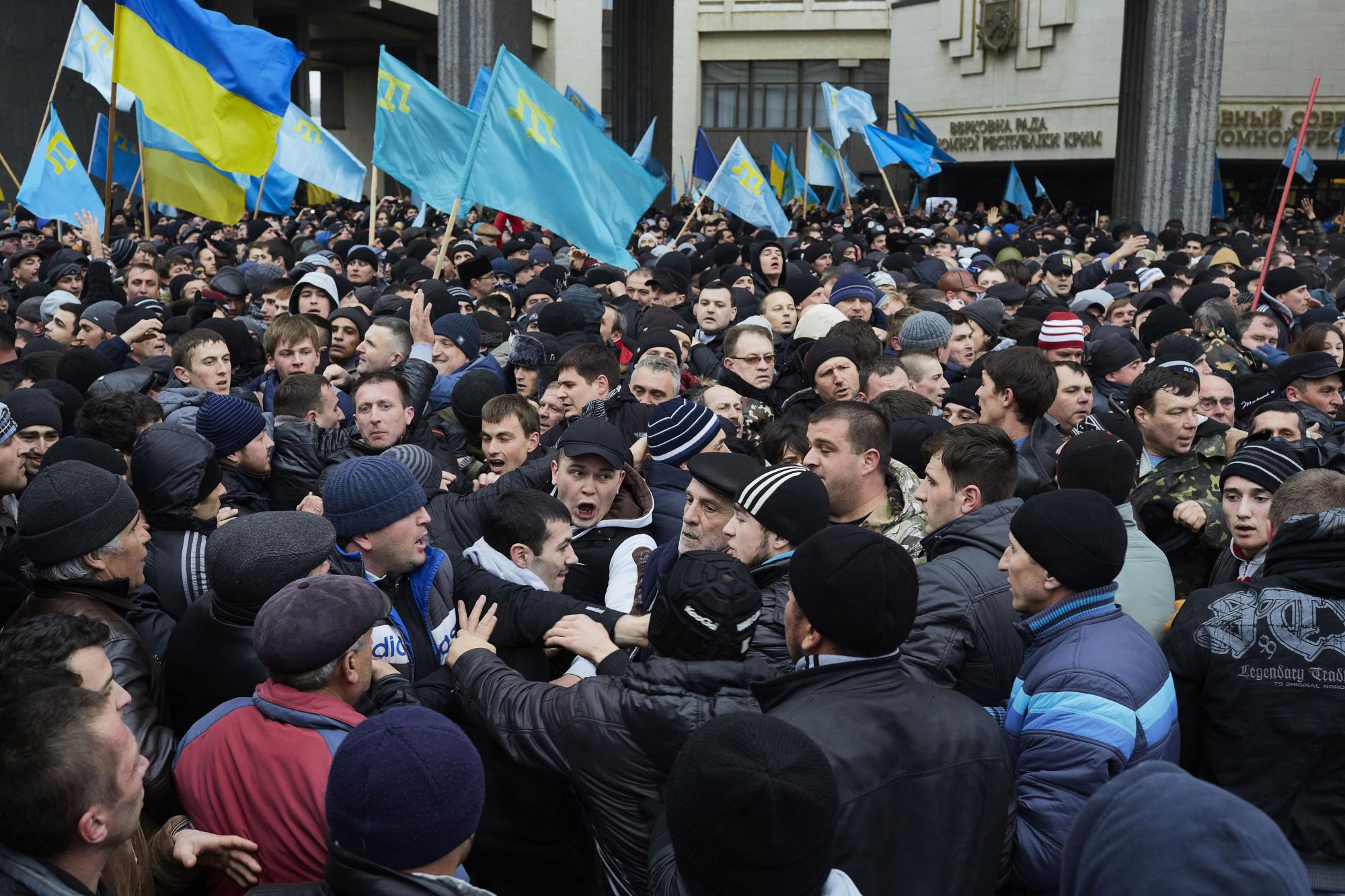
Clashes near the building of the Crimean Parliament, 2014 (photo: Getty Images)
How much Putin and his entourage believe in their own narratives is an open question. But they are definitely an important part of their information policy both inside Russia and externally.
“First of all, it is a kind of hypnosis that was created. Secondly, the Russian authorities cannot speak otherwise because this is their propaganda, an element that must be obligatory. And clearly, Crimea is one of the points of manipulation. It should also be noted that the Russians themselves create this myth about Crimea in order to strengthen at least some claims against Ukraine,” Alfyorov told RBC-Ukraine.
Why Crimea was mentioned
In the Kremlin, they clearly understand that neither Ukraine nor European countries will recognize Crimea as Russian in any form. First of all, because such a step could open a real Pandora's box.
Recognition of the annexation of Crimea would undermine international law, particularly the principle of territorial integrity of states. And this, in turn, would weaken the legal order established after World War II. And eventually, it could provoke authoritarian countries such as China or Türkiye into territorial claims against their weaker neighbors. Therefore, in practice, Russia's demands are unfeasible.
“These are demands simply to derail the negotiations and to sign off on the aggressive nature of the Russian regime because they contradict international law. It’s the same as demanding to extinguish the sun. That’s why they make them fully aware that no one will even seriously discuss it,” Borys Babin told the publication.
It seems that not only European leaders understand this, but also the more realistically minded part of Trump's entourage. However, judging by the changing statements of the American president on this topic, the fight for his position in the White House continues.
Under these circumstances, talks about recognizing Crimea, paradoxically, have worked more in Ukraine's favor, as they confirm that Putin does not want peace. However, the US’s intention to end the war as soon as possible, even through pressure on Russia, may leave the extremely difficult issue of Crimea outside the scope of substantive negotiations.
In such conditions, the most realistic scenario appears to be the preservation of Crimea’s current status and a return to political and diplomatic means of its return after the end of the Russian-Ukrainian war. Ultimately, this is the scenario that President Zelenskyy proposed even before the full-scale invasion.
Sources: Axios, Reuters, CNN, Times, and comments by Oleksii Hetman, Pavlo Lakiychuk, Oleksandr Alfyorov, and Borys Babin.
